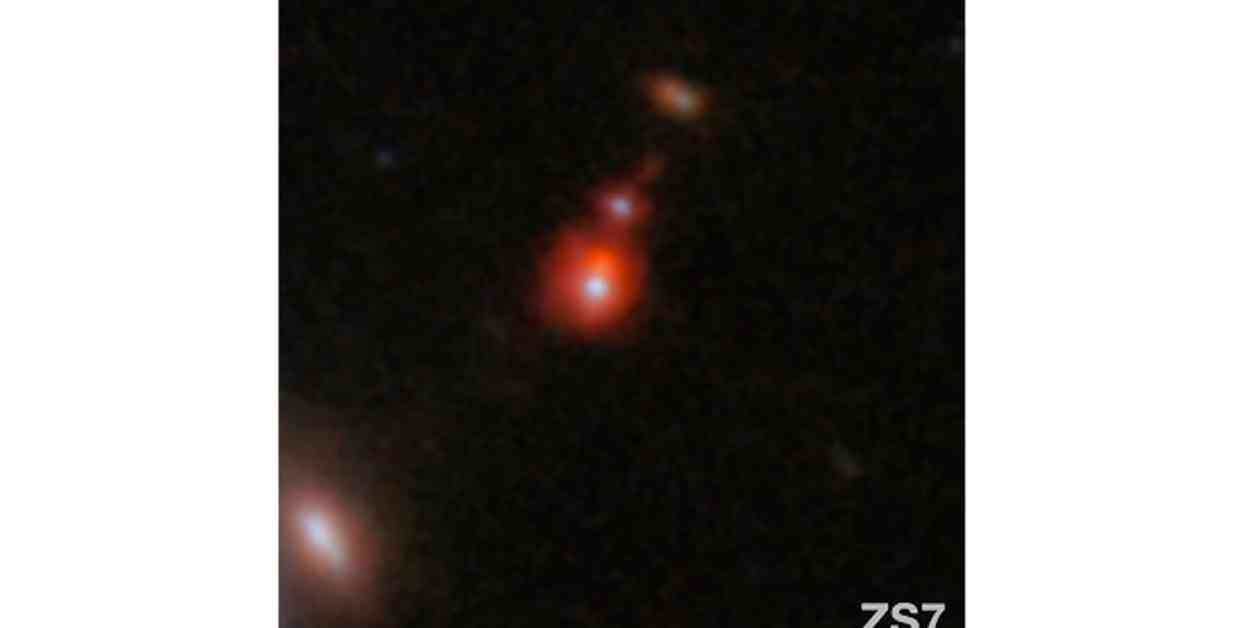Astrophysicists at Northwestern University recently conducted a simulation showcasing black holes in action, “taking bites” out of stars and expelling the remains like “messy toddlers.” The mesmerizing 3D computer simulation offers a unique perspective on these cosmic phenomena.
The Webb Space Telescope, known for its groundbreaking discoveries, has uncovered the earliest known merger of massive black holes. This significant finding sheds light on the rapid growth of these celestial giants. The merger, which took place just 740 million years after the Big Bang, involves two black holes, with one being 50 million times more massive than the sun. The other black hole, similar in size, is obscured by dense gas, posing challenges for accurate measurements.
Astronomers have long been puzzled by how supermassive black holes attain such colossal sizes. The recent discovery suggests that mergers could be the key to their rapid growth, even during the universe’s early stages. Lead author Hannah Ubler from the University of Cambridge emphasizes that these massive black holes have played a crucial role in shaping the evolution of galaxies since the dawn of time.
The latest findings, published in the Monthly Notices of the Royal Astronomical Society, provide valuable insights into the cosmic processes that govern the universe. The discovery of the distant black hole merger highlights the importance of continuous exploration and research in the field of astrophysics.
Launched in 2021, the Webb Space Telescope represents a significant advancement in space observation technology. As the successor to the Hubble Space Telescope, Webb offers unprecedented capabilities for exploring the universe. Positioned 1 million miles from Earth, this joint U.S.-European project utilizes infrared technology to survey the cosmos and uncover hidden cosmic phenomena.
The discovery of the massive black hole merger in the early universe marks a significant milestone in astrophysics. By unraveling the mysteries of these celestial giants, scientists are gaining a deeper understanding of the universe’s evolution and the role of black holes in shaping its destiny. As we continue to push the boundaries of space exploration, new revelations and groundbreaking discoveries await us in the vast expanse of the cosmos.




